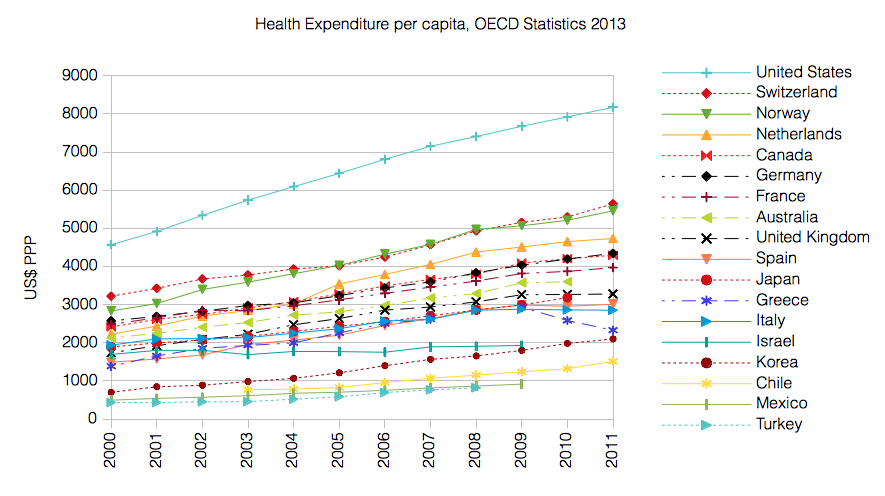Interesting that you said benefited from slavery, I would argue that we are still paying a very high price for that evil and exploitative system. Of course, the Swedes can do some things better. I have ancestry from Sweden and Italy. Better food and family connections from the Italian side, stoicism and hard work from the Scandinavian side. maybe more specific examples of how the Swedes do certain things in healthcare better might be more useful than just saying that US bad others are better.
Here is a suggestion, maybe we should let each state run their own healthcare systems because many states have similar populations to Sweden. If a system works in one state, then other states adopt it. I really don't like the degree of centralization that is occurring in our country and see that as more of a problem than any specific policy.
Damn if I don't wish novopsych were here. I get tired of being so "heady." The mind teams with more fun ways to respond.
Anyhow.
I'm not sure how to phrase it without saying benefitted. It's like South Korea's labor force under Park. The labor was extremely repressed and faced horrific conditions, but nonetheless the country was changed as a result of rapid industrialization and is now a modern nation.
I'm not saying development has to take place in that way. I was giving Sweden as an example of a country that did not follow that developmental path.
In the holistic sense of development like Sen's view of development, you could definitely argue that the ends don't justify the means. I would agree. But it's still true that Korea, for example, is a different type of country today because of the iron fist of Park, regardless of how harsh his rule was. In the same way, the US gained economic advantage through slavery. I was listing reasons that the US had comparatively done well in the past per its population—and they are all reasons that cannot last.
As for a specific example of how healthcare is different in Sweden, you don't have to be rich to become a doctor. You don't have to take out hundreds of thousands of dollars of loans. I don't know this to be true, but I would assume that means there are more doctors and more competition. I looked it up and saw that the medical association there still limits the number of seats, but I still think there are benefits to going to medical school without all that debt. When you look around these forums, you see people who are worried about a return on their investment. That doesn't necessarily attract the best people to the fields they are best suited for. If you're leaving medical school with the mindset that you need to recoup your costs quickly, I think that's problematic.
The bigger picture reason that the system is better is that it is almost entirely state-funded. That means that for the most part there is one big public pool and the government negotiates on behalf of everyone and you take out a middle man (insurance company) that is interested in transactional costs. There's more leverage.
The system, though, is very decentralized in terms of its management:
http://en.wikipedia.org/wiki/Healthcare_in_Sweden
I don't think a decentralized system would work in the US right now. We just passed Obamacare which was the conservative option of the choices we had in front of us and we can't get states (like Virginia) to take money to expand Medicaid.
You've made me argue my point to my level of incompetency. I have the general idea in my head: Bigger pool, better bargaining options, cheaper care. I can't square that exactly with how Sweden does what it does, but it spends a lot less on healthcare than the US and everyone has access. I don't know everything about this. Not like novopsych who does know everything with great certainty.
When I was a child I was being read some Finnish book about a troll named Mumin (I don't know Finnish, so I imagine it had been translated). He was floating down a river. And I remember this line where Mumin said that he wanted to go to some place where he didn't have to explain himself to anyone.

